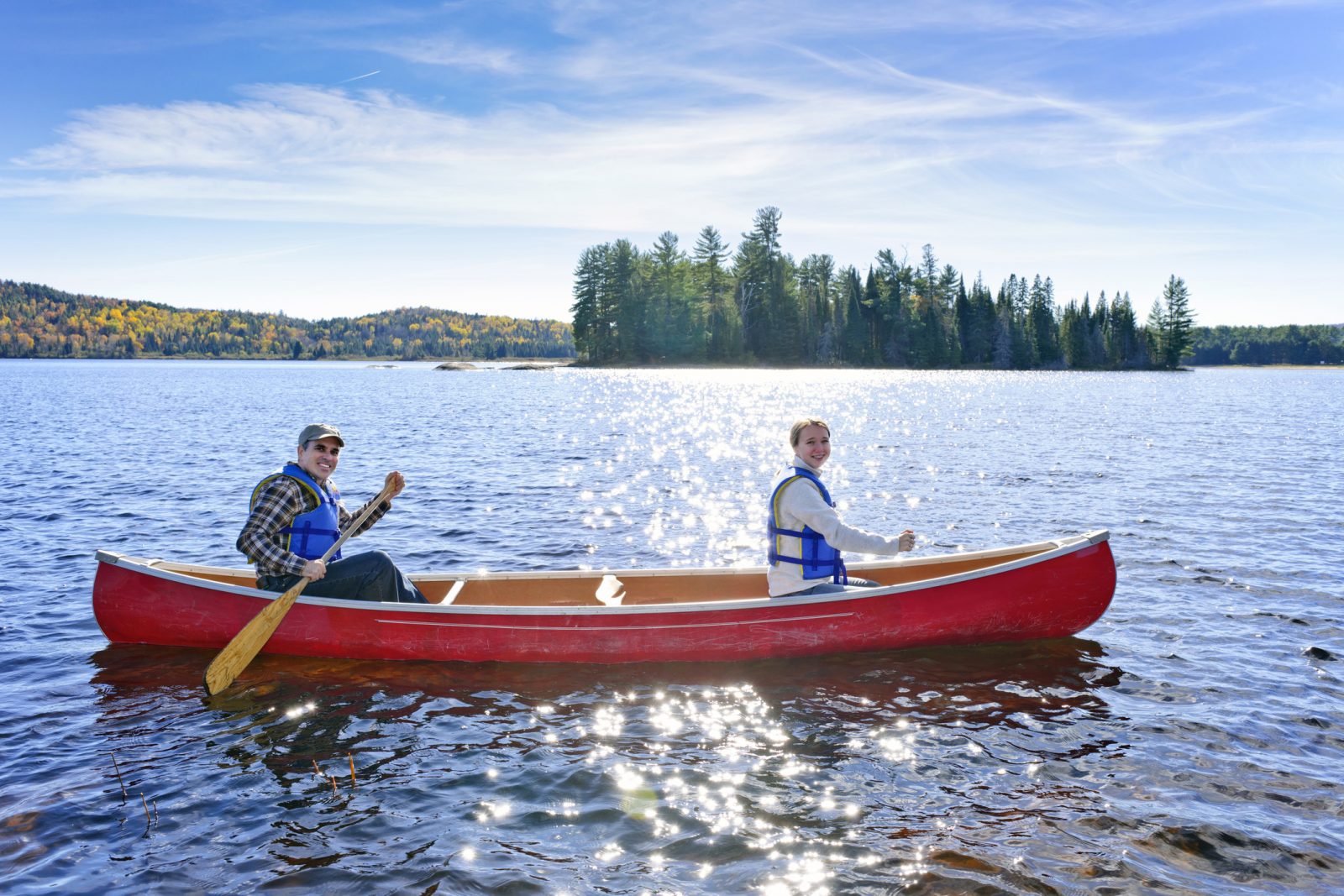 Brock experts are encouraging people to read up on Leave No Trace principles as they ready to explore Canada Parks sites this summer.
Brock experts are encouraging people to read up on Leave No Trace principles as they ready to explore Canada Parks sites this summer.While Canadians are visiting national parks, historic sites and marine conservation areas for free this summer, Brock experts want them to be mindful of their potential impact on these protected areas.
As part of Canada’s 150th birthday celebrations, Parks Canada has opened its sites at no cost through use of a Discovery Pass. The gesture is expected to increase traffic at the national sites, and Brock experts are encouraging visitors to be mindful of leaving no environmental trace during their trip.
“Healthy parks help to create healthy people and communities and can continue to do so for generations through actions of care,” says Recreation and Leisure Studies Associate Professor Garrett Hutson.
Visiting Canada’s National Parks is a wonderful way to promote sustainable relationships with the natural world. By using Leave No Trace principles, Hutson believes Canadians can practise ways of recognizing and minimizing recreational impacts to natural areas.
“Many visitors don’t realize the impacts they cause, which is why all park visitors should familiarize themselves with the seven Leave No Trace principles,” says Hutson, who has done considerable research on the topics of outdoor recreation management, outdoor leadership and person-place relationships.
These principles include:
- Plan ahead and prepare: Park visitors should do research about a site before visiting to find out what they’ll need for a safe and enjoyable experience. Considerations include but are not limited to planning for food, water, first aid, proper footwear such as hiking boots, and clothing such as rain gear, as well as maps that might be needed.
- Travel and camp on durable surfaces: Visitors should stay on trails and not trample fragile vegetation. Additionally, camping at established campsites concentrates impacts as opposed to camping in pristine settings.
- Dispose of waste properly: Whatever is packed in to a park should get packed out. This includes all trash and garbage.
- Leave what you find: Artifacts discovered should be left for other people to enjoy. These could include archeological items, antlers, fossils and wildflowers. This principle also stresses the importance of not bringing non-native species into areas visited. Leave only footprints, take only pictures.
- Minimize campfire impacts: Campfires are a privilege and should be enjoyed at established fire rings where permitted. Many people don’t realize that fire rings damage soils that may never fully recover. Instead of cooking over a fire, cook over a camp stove. Enjoy the glow of a small candle lantern instead of a fire.
- Respect wildlife: Observe wildlife from a distance. Do not startle, harass or disturb wildlife in any way. Never feed animals. Feeding wildlife damages their health, alters natural behaviours and exposes them to predators and other dangers. Respect wildlife by storing food in a secure way away from tenting areas.
- Be considerate of other visitors: Be nice to other visitors and respect their experience. Be courteous and help others in need.
Students enrolled in Brock’s Outdoor Recreation courses often explore a variety of Ontario’s most stunning landscapes such as Algonquin, Killarney and Frontenac parks, where they practise and learn outdoor leadership while ensuring they leave a minimal impact on the environment.
“We regularly use the Niagara Glen and other escarpment areas as outdoor classrooms,” says Hutson. “As part of our commitment to recreation management, our students earn a Leave No Trace trainer certification, which prepares them to teach minimum impact practices to others.”
Integrating these basic Leave No Trace ideas into outdoor recreation programs has become commonplace, as more and more people are active outside, explains Recreation and Leisure Studies Professor Tim O’Connell.
“This has led to heightened awareness of the need to educate outdoor recreationists about the magnitude and variety of impacts they create,” he says.
Watch this video to learn more from Tim O’Connell about how to leave no trace this summer when visiting Parks Canada sites.
Story from The Brock News

